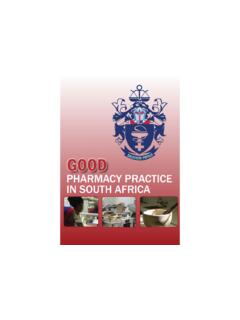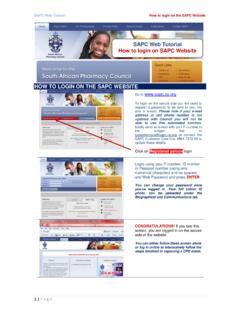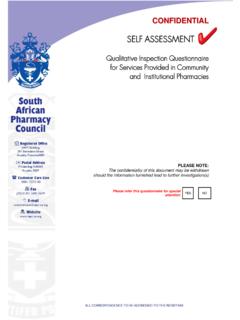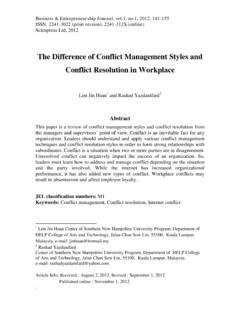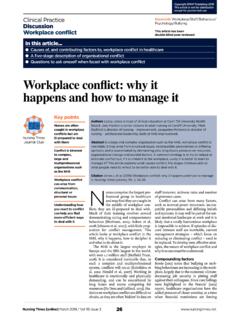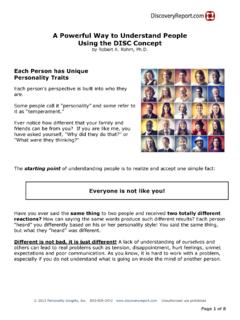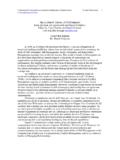Transcription of PRINCIPLES OF ETHICS
1 ETHICS and Standards Committee 2011 Page 1 PRINCIPLES OF ETHICS The South African Speech, Language, Hearing Association (SASLHA) recognizes its responsibility to promote ethical conduct amongst its members. The following revised Code of ETHICS is a response to changes in society at both national and international levels, to amendments to the Health Professions Act No 56 of 1974 that have direct relevance to our professions and to new developments in the professions during the past decade. There are moral theories that describe how we ought to engage with the world and those we encounter in it.
2 These theories serve as the ground for the PRINCIPLES we derive to guide our clinical practice and decision-making as professionals and as individuals. They express our professional values. In setting out these PRINCIPLES , the ETHICS and Standards Committee hopes to inspire members of the association and of the professions to aspire to standards of excellence in practice and research and to conduct respectful relationships with clients and professionals alike. Members shall observe these PRINCIPLES as affirmative obligations and duties for practice, under all conditions. From time to time we are faced with complex situations that require an ethical response.
3 In such cases the PRINCIPLES should be carefully considered relative to the nature of the problems and their context. Occasionally PRINCIPLES may be in conflict therefore a defensible and carefully considered decision needs to be reached by sound ethical reasoning. The PRINCIPLES are beneficence, non-maleficence, autonomy, justice; truth-telling and promise-keeping. PRINCIPLE I Members of the professions of Speech Language Therapy and Audiology shall at all times act in the best interests of and avoid harm to people receiving their services or participating in research, involve people fully in the planning and decision-making that are part of the therapeutic process and respect their beliefs and values.
4 This general principle refers to autonomy, beneficence and non-maleficence, truth-telling and fidelity. ETHICS and Standards Committee 2011 Page 2 PRINCIPLE II Members of the professions of Speech Language Therapy and Audiology shall promote their professions by providing accurate information to the public regarding the scope of the professions, new developments, the services we provide and where to access them. This general principle refers to beneficence, non-maleficence and truth-telling. PRINCIPLE III Members of the professions of Speech Language Therapy and Audiology shall ensure that services are made available and accessible to persons with communication disorders and that these services are appropriate to particular individual and community needs.
5 This principle refers to beneficence, social and distributive justice, and fidelity. PRINCIPLE IV Members of the professions of Speech Language Therapy and Audiology shall uphold the dignity of the professions, maintain harmonious relationships with colleagues, students and other professionals, and practice in close adherence to the Ethical Rules of the Health Professions Council of South Africa. This principle refers to beneficence, non-maleficence and fidelity. PRINCIPLE V Members of the professions of Speech Language Therapy and Audiology shall act responsibly regarding their ongoing professional development and maintain competence in their fields of practice whilst simultaneously safeguarding their personal welfare.
6 This principle refers to beneficence and truth-telling. ETHICS and Standards Committee 2011 Page 3 GLOSSARY Morality is about a set of guidelines that we apply to the complex circumstances of life to help us decide whether an act, a value, a character trait is right or wrong. Knowledge of the moral norms of society enables us to reflect on our circumstances, clarify our thoughts and choose to live in ways that promote good relations and harmony. Socrates said that the unexamined life is no life for a human being. Morality is about making choices, right choices. Moral theories are attempts to pull together a collection of concepts into a coherent whole in order to answer an ethical question or solve an ethical problem (Mizzoni, 2010; page 5).
7 ETHICS is the systematic analysis of and reflection on morality. For our purposes we are concerned with normative ETHICS , that branch of ETHICS that is concerned with concrete, practical questions related to the morality of our character traits and actions. This is directly relevant to us in the practice of our professions when we need to know what makes something right or wrong. PRINCIPLES may be viewed here as perspectives (they are also the premises of a logical argument). We may apply PRINCIPLES as we attempt to decide whether to act in one way or another.
8 In doing so we obtain different perspectives, understand what the consequences of a particular course of action might be. There are four primary PRINCIPLES in bioethics: Autonomy is the capacity to think, decide and act on the basis of such thought and decision, freely and independently (Gillon, 1986; Hope, 2004) Beneficence emphasizes the moral importance of doing good to others; in the context of bioethics it refers to the promotion of what is best for the patient. Non-maleficence is often referred to as the opposite side of the coin to beneficence. It states that we should not harm patients.
9 It differs from beneficence in the scope of its application: we have a prima facie duty not to harm anyone. Justice is a principle with four components: distributive justice; respect for the law; rights and retributive justice. Distributive justice is concerned with the equitable allocation of resources; the second refers to whether the fact that an act is or is not against the law, is of moral relevance; rights are considered to be special advantages with correlative duties to provide them; retributive justice refers to making right when a wrong has been perpetrated. In addition we have these duties: Fidelity refers to meeting the patient s reasonable expectations regarding respect, competence, subscribing to a professional code of conduct, following policies and procedures honoring agreements made between clinician and patient.
10 Truth-telling relates to the disclosure of information in a respectful and compassionate way. ETHICS and Standards Committee 2011 Page 4 _____ A code of ETHICS sets out the PRINCIPLES and accompanies them with their application in context as a set of rules. Naturally a principle is broader than the rules it expresses. The Ethical Rules for the Health Professions (Amendments R717 4th August 2006 and R9016 2nd February 2009 of the Health Professions Act No 56 of 1974) place upon members of the association and professions a statutory obligation to adhere to the rules that flow from these PRINCIPLES .
